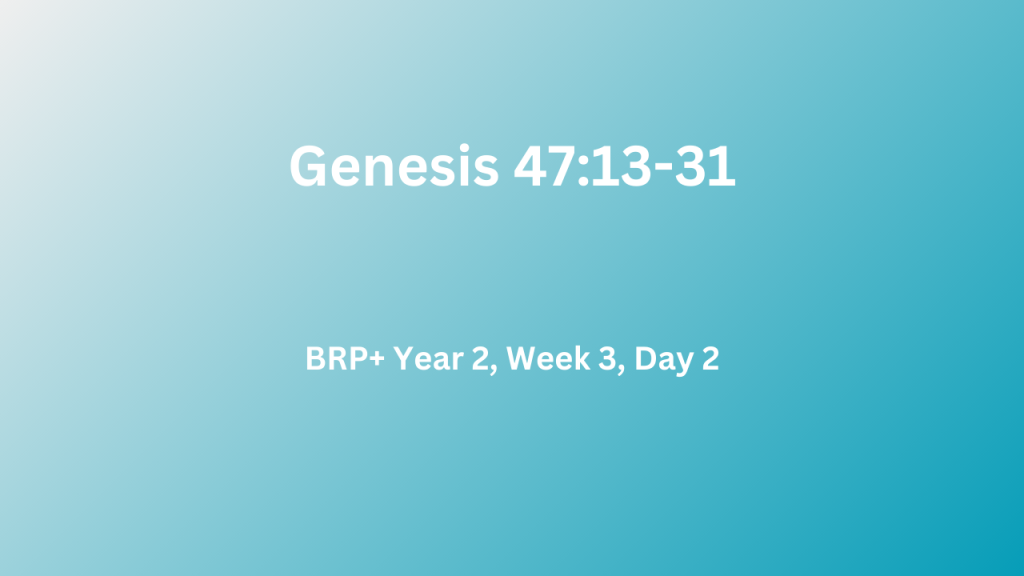Genesis 47:13-31
Q.1. Did Joseph allow the Egyptians to become socially dependent? How did he treat the religious leaders? What did the Egyptians think about Joseph? – (Gen.47:13-26)
What are we to make of Joseph’s policies during the times of famine? During the years of plenty, Joseph had acted with wisdom, leading the Egyptians to store their grain, as ants do (Gen.41:33-36’ 47-49 c.f. Prov.30:24-25). As the famine struck Egypt and the surrounding nations, Joseph collected all the money and livestock as people paid for the food from the granaries and – … brought their livestock to Joseph, and Joseph gave them food in exchange for their horses, flocks, herds, and their donkeys, and he fed them with food in exchange for all their livestock that year (Gen.47:17). They then offered their land and themselves as slaves, so they could survive, and – Joseph bought all the land of Egypt for Pharaoh, for every Egyptian sold his field, because the famine was severe upon them. Therefore, the land became Pharaoh’s (Gen.47:20). Joseph established a policy – At the harvest you shall give a fifth to Pharaoh, and four-fifths shall be your own for seed of the field and for your food and for those of your households and as food for your little ones (Gen.47:24). The people gratefully responded – … “You have saved our lives! Let us find favour in the sight of my lord, and we will be Pharaoh’s slaves.” (Gen.47:25). The only exceptions were those who represented God. They kept the title deeds of their land and were exempted from paying taxes (Gen.47:22 & 26). By requiring something for the benefits provided, Joseph gave the people a sustainable future.
Q.2. How did Israel fare while in Egypt? Why did Jacob make Joseph promise to bury him in Canaan? What made the promise by Joseph sure? – (Gen.47:27-31)
The family of Israel thrived in Egypt – Now Israel lived in the land of Egypt, in Goshen, and they acquired property in it and were fruitful and became very numerous (Gen.47:27). Just as the early church in Jerusalem was scattered during persecution, Israel too would eventually go out as a nation under the rod of slavery (c.f. Acts 8:1-4; 11:19-21). As Jacob neared the end of his life – 29 … he called his son Joseph and said to him, “Please, if I have found favour in your sight, place now your hand under my thigh and deal with me in kindness and faithfulness. Please do not bury me in Egypt, 30 but when I lie down with my fathers, you shall carry me out of Egypt and bury me in their burial place.” And he said, “I will do as you have said.” (Gen.47:29-30). God had prophesied to Abraham years before that his descendants would become slaves in a foreign land for four hundred years and then return to the Promised Land (Gen.15:13-14). When God led Jacob down to Egypt, He promised Jacob that his children would return to the Promised Land again (Gen.46:2-4). This was not a light-hearted conversation, but a solemn oath, when Jacob asked Joseph to place his hand next to his thigh and swear to take his remains back to the Promised Land (Gen.47:29-31). Joseph was true to his word, and in due time – his sons carried him to the land of Canaan and buried him in the cave of the field of Machpelah before Mamre, which Abraham had bought along with the field for a burial site from Ephron the Hittite (Gen.50:13).

